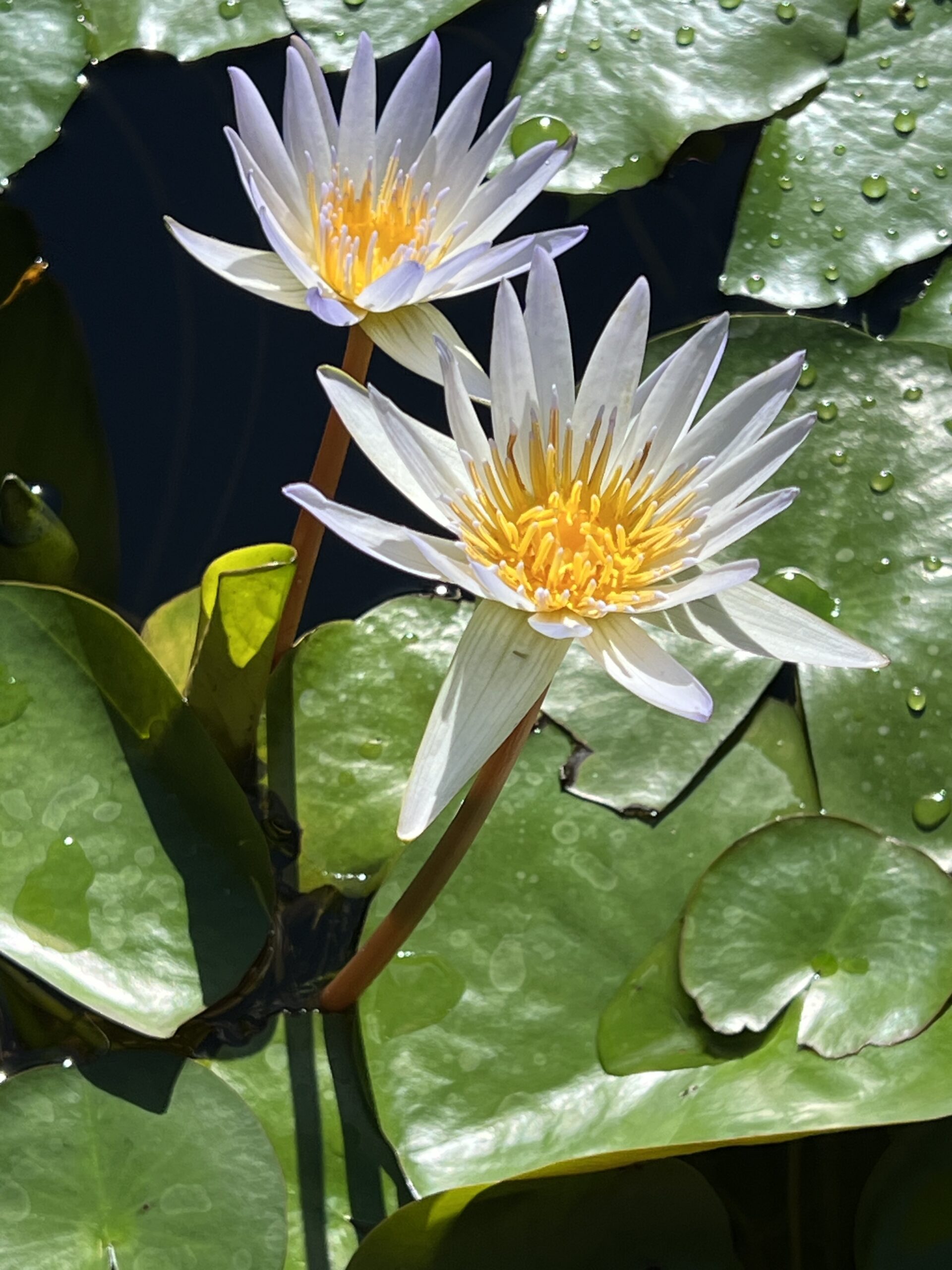WHO AM I?
There were at least three people sharing a pool lane with me this morning. All having a lot to say. Making waves on the otherwise glass-calm water. The pool was empty. The personalities disturbing the peace of an aquamarine morning were all in my head. So many conversations going on. Such a great way to spoil an exceptionally clear and warm morning. Finally, floating on my back and staring up at the cloudless expanse of robin’s-egg-blue, I was able to witness this inner bickering with just enough equanimity to temporarily drown out the noise by repeating the Divine Light mantra that I learned at Yasodhara Ashram in the late 1980s:
“I am created by Divine Light. I am sustained by Divine Light. I am protected by Divine Light. I am surrounded by Divine Light. I am ever growing into Divine Light.”
Later, as I reflected on the dissonance between the restless activity of my mind and that infinity of blue sky, an excerpt from Swami Radhananda’s Living the Practice came to mind. In her chapter titled “A Skylike Mind” she writes:
“We spend so much time identifying with the busy mind, the monkey mind, the restless mind, all the names we label it with. We focus on the limitations, rather than the potential. We try to control it, overcome the negative tendencies, but what if we let the Light in? What if we recognized our minds as Light?”
Simply put, we identify all too often with one or two facets of our psyche, call them personality aspects or egos that run the show. When we feel threatened or vulnerable, our reasoning faculties can get hijacked by the reptilian brain that psychologist Dan Siegel explains with the analogy of a two-storey home:
“The downstairs brain, often referred to as the reptilian or primitive brain, contains the brain stem, limbic region and the amygdala. This instinctive part of the brain is well developed from birth and is responsible for basic physical functioning, along with the innate threat responses of fight, flight, freeze, or [appease].”
This downstairs brain is also responsible for producing strong emotions like fear and anger that can, if the upstairs brain is insufficiently developed, completely override the rational, thinking capacities and cripple one’s ability to make sound decisions, control their behaviour or show empathy.
Seigel’s analogy continues with: “the upstairs brain can be imagined as a light filled, airy, second storey study, library or bedroom filled with windows and sky lights, enabling us to see the world more clearly.”
Siegel describes the exchange of information between downstairs and upstairs levels of the brain as a staircase. When working well, the staircase enables us to consider the emotional and physical messages coming from the downstairs brain and use the thinking and analysing upstairs brain to determine a course of action. Unfortunately, much of what we witness in society today is illustrative of a failure to ascend that staircase. A failure, on a very fundamental level, to control our self-serving agendas or kneejerk defenses. In Untethered Soul Michael Singer calls this impulsive, immature aspect our “inner maniac”.
Swami Radhananda has this to offer:
“When the Light lights up your mind, first you may have to address what it reveals – all the fears hidden in the dark, the issues left unaddressed – and clean up the clutter. And with the space that emerges, you may then experience a different kind of fear, what you could call a holy fear, a fear of the unknown, luminous mind.
“To face the awesome part of ourselves is a difficult thing to do. We live in a mundane reality, and to go from the mundane to the unexplainable is a huge step for the mind. You will find that you are asking new questions, such as: Who am I? What is my responsibility, knowing that this luminous place is possible?”
I do know that this luminous place is possible. I know its my responsibility to ascend that staircase each and every day. And I know when I’m nowhere near being in that second-storey brain. In the pool this morning I could honestly say I was out of my right mind. Even to register this is a major victory.
Using the tools of journaling, breathwork, mantra chanting and/or Light Invocations, I am steered intuitively to the messages I need, which is to firmly step away from the inner conversations, as I did by switching to the Light mantra in the pool. More often than not, these conversations are just the residue of hidden fears and unfinished emotional business, the product of convoluted logic, or no logic at all. That cleaning up this clutter can be a colossal struggle only shows how far I yet have to go to achieving Swami Radhananda’s skylike mind:
“This is what yoga is all about – building awareness of the Light and building the courage to live life. “I am not the body. I am not the mind. I am Light eternal.” Make the space available – have a skylike mind that holds the Light.”
Aum Namah Sivayah
Here are two links that might serve for future use in the struggle with your inner maniac: https://youtu.be/TaqQlW-3yDg?si=fHhNhRuAc3rDJPw1
and https://www.google.com/books/edition/The_Divine_Light_Invocation/RQ088-vIVhQC?hl=en&gbpv=1&printsec=frontcover
